The Judiciary And Politics In Pakistan 1999-2013
By: Najeeb-Ur-Rehman
-
Rs 3,395.75
- Rs 3,995.00
- 15%
You save Rs 599.25.
Due to constant currency fluctuation, prices are subject to change with or without notice.
The Judiciary And Politics In Pakistan 1999-2013
By: Najeeb-Ur-Rehman
Rs 3,395.75 Rs 3,995.00 Ex Tax :Rs 3,395.75
Zubin Mehta: A Musical Journey (An Authorized Biography)
By: VOID - Bakhtiar K. Dadabhoy
Rs 892.50 Rs 1,050.00 Ex Tax :Rs 892.50
Alternative to the IMF: And Other Out of the Box Solutions
By: Shahida Wizarat
Rs 4,250.00 Rs 5,000.00 Ex Tax :Rs 4,250.00
Creation of Bangladesh: Myths Exploded - Paperback
By: Dr. Junaid Ahmad
Rs 2,250.00 Rs 2,500.00 Ex Tax :Rs 2,250.00
Development Pathways
By: Dr. Ishrat Husain, Sarah Nizamani, Shagufta Shabbar and Masood Siddiqui
Rs 3,145.50 Rs 3,495.00 Ex Tax :Rs 3,145.50
SECULAR MUSLIM JINNAH, HIS POLITICS AND PAKISTAN
By: MD UMAIR KHAN
Rs 2,545.75 Rs 2,995.00 Ex Tax :Rs 2,545.75
The China-Pakistan Axis: Asia's New Geopolitics
By: Andrew Small
Rs 5,935.50 Rs 6,595.00 Ex Tax :Rs 5,935.50
The Origins of Political Order From Prehuman Times to the French RevolutioN
By: Francis Fukuyama
Rs 4,045.50 Rs 4,495.00 Ex Tax :Rs 4,045.50
Manning Up: How the Rise of Women Has Turned Men into Boys
By: Kay Hymowitz
Rs 845.75 Rs 995.00 Ex Tax :Rs 845.75
The Obama Syndrome: Surrender At Home War Abroad
By: Tariq Ali
Rs 1,100.75 Rs 1,295.00 Ex Tax :Rs 1,100.75
The Quest For Meaning: Developing A Philosophy Of Pluralism
By: Tariq Ramadan
Rs 1,185.75 Rs 1,395.00 Ex Tax :Rs 1,185.75
The Pakistan US Conundrum Jihadists The Military And The People The Struggle For Control
By: Yunas Samad
Rs 1,185.75 Rs 1,395.00 Ex Tax :Rs 1,185.75
An Enemy We Created: The Myth Of The Taliban Al Qaeda Merger In Afghanistan 19702010
By: Alex Strick van Linschoten
Rs 4,197.50 Rs 8,395.00 Ex Tax :Rs 4,197.50
WikiLeaks: Inside Julian Assanges War on Secrecy
By: David Leigh & Luke Harding
Rs 637.50 Rs 850.00 Ex Tax :Rs 637.50
Alternative to the IMF: And Other Out of the Box Solutions
By: Shahida Wizarat
Rs 4,250.00 Rs 5,000.00 Ex Tax :Rs 4,250.00
Creation of Bangladesh: Myths Exploded - Paperback
By: Dr. Junaid Ahmad
Rs 2,250.00 Rs 2,500.00 Ex Tax :Rs 2,250.00
Development Pathways
By: Dr. Ishrat Husain, Sarah Nizamani, Shagufta Shabbar and Masood Siddiqui
Rs 3,145.50 Rs 3,495.00 Ex Tax :Rs 3,145.50
SECULAR MUSLIM JINNAH, HIS POLITICS AND PAKISTAN
By: MD UMAIR KHAN
Rs 2,545.75 Rs 2,995.00 Ex Tax :Rs 2,545.75
The China-Pakistan Axis: Asia's New Geopolitics
By: Andrew Small
Rs 5,935.50 Rs 6,595.00 Ex Tax :Rs 5,935.50
The Landmark Arrian - The Campaigns of Alexander
By: Robert B. Strassler
Rs 1,909.10 Rs 2,246.00 Ex Tax :Rs 1,909.10
Disney*Pixar - All Stars
By: Editors of Phoenix International Publications
Rs 447.50 Rs 895.00 Ex Tax :Rs 447.50
LEGO Marvel Visual Dictionary - With an Exclusive LEGO Marvel Minifigure
By: Simon Hugo
Rs 5,215.50 Rs 5,795.00 Ex Tax :Rs 5,215.50
How to Train Your Dragon 20th Anniversary Edition - Book 1
By: Cressida Cowell
Rs 2,785.50 Rs 3,095.00 Ex Tax :Rs 2,785.50
Pretty Famous Tales - Aladdin & His Wonderful Lamp
By: Dreamland
Rs 212.50 Rs 250.00 Ex Tax :Rs 212.50
The Story Orchestra Swan Lake Musical Puzzle
By: Jessica Courtney-Tickle
Rs 3,415.50 Rs 3,795.00 Ex Tax :Rs 3,415.50
Critical Role: Vox Machina Origins Library Edition: Series I & II Collection
By: Critical Role
Rs 10,795.50 Rs 11,995.00 Ex Tax :Rs 10,795.50
Zubin Mehta: A Musical Journey (An Authorized Biography)
By: VOID - Bakhtiar K. Dadabhoy
Rs 892.50 Rs 1,050.00 Ex Tax :Rs 892.50
The Judiciary And Politics In Pakistan 1999-2013
By: Najeeb-Ur-Rehman
Rs 3,395.75 Rs 3,995.00 Ex Tax :Rs 3,395.75
Alternative to the IMF: And Other Out of the Box Solutions
By: Shahida Wizarat
Rs 4,250.00 Rs 5,000.00 Ex Tax :Rs 4,250.00
Creation of Bangladesh: Myths Exploded - Paperback
By: Dr. Junaid Ahmad
Rs 2,250.00 Rs 2,500.00 Ex Tax :Rs 2,250.00
Development Pathways
By: Dr. Ishrat Husain, Sarah Nizamani, Shagufta Shabbar and Masood Siddiqui
Rs 3,145.50 Rs 3,495.00 Ex Tax :Rs 3,145.50
SECULAR MUSLIM JINNAH, HIS POLITICS AND PAKISTAN
By: MD UMAIR KHAN
Rs 2,545.75 Rs 2,995.00 Ex Tax :Rs 2,545.75
The China-Pakistan Axis: Asia's New Geopolitics
By: Andrew Small
Rs 5,935.50 Rs 6,595.00 Ex Tax :Rs 5,935.50












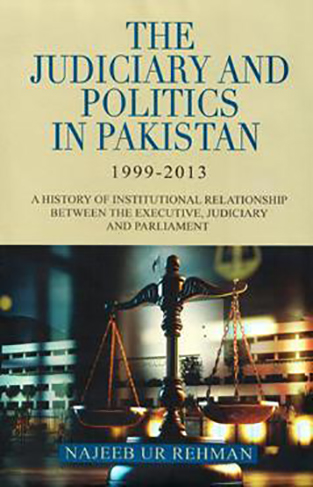
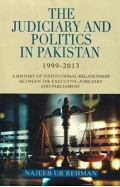
-120x187.jpg?q6)





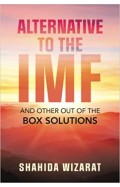
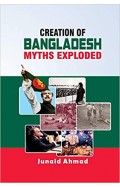
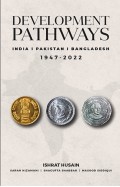
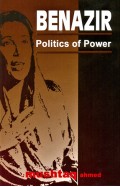

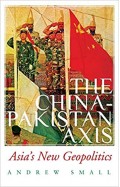
-120x187.jpg?q6)



-120x187.jpg?q6)





















